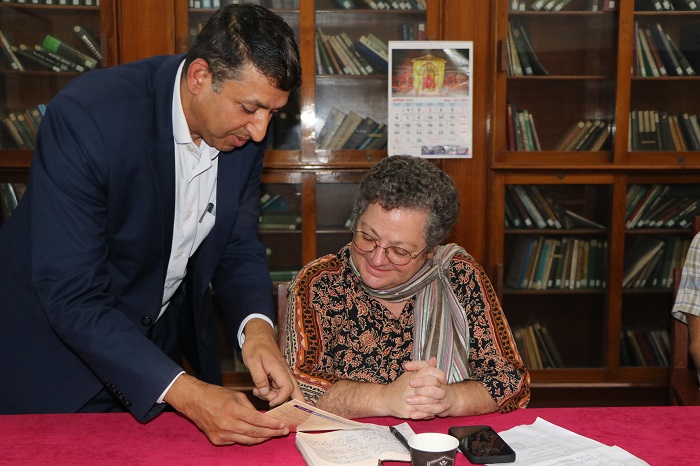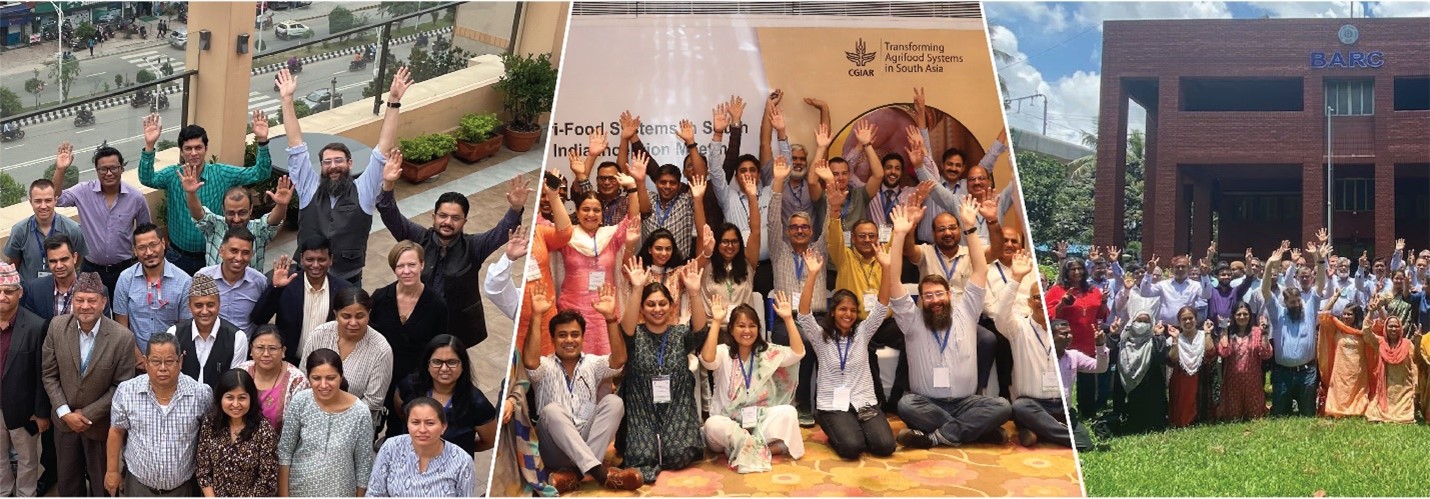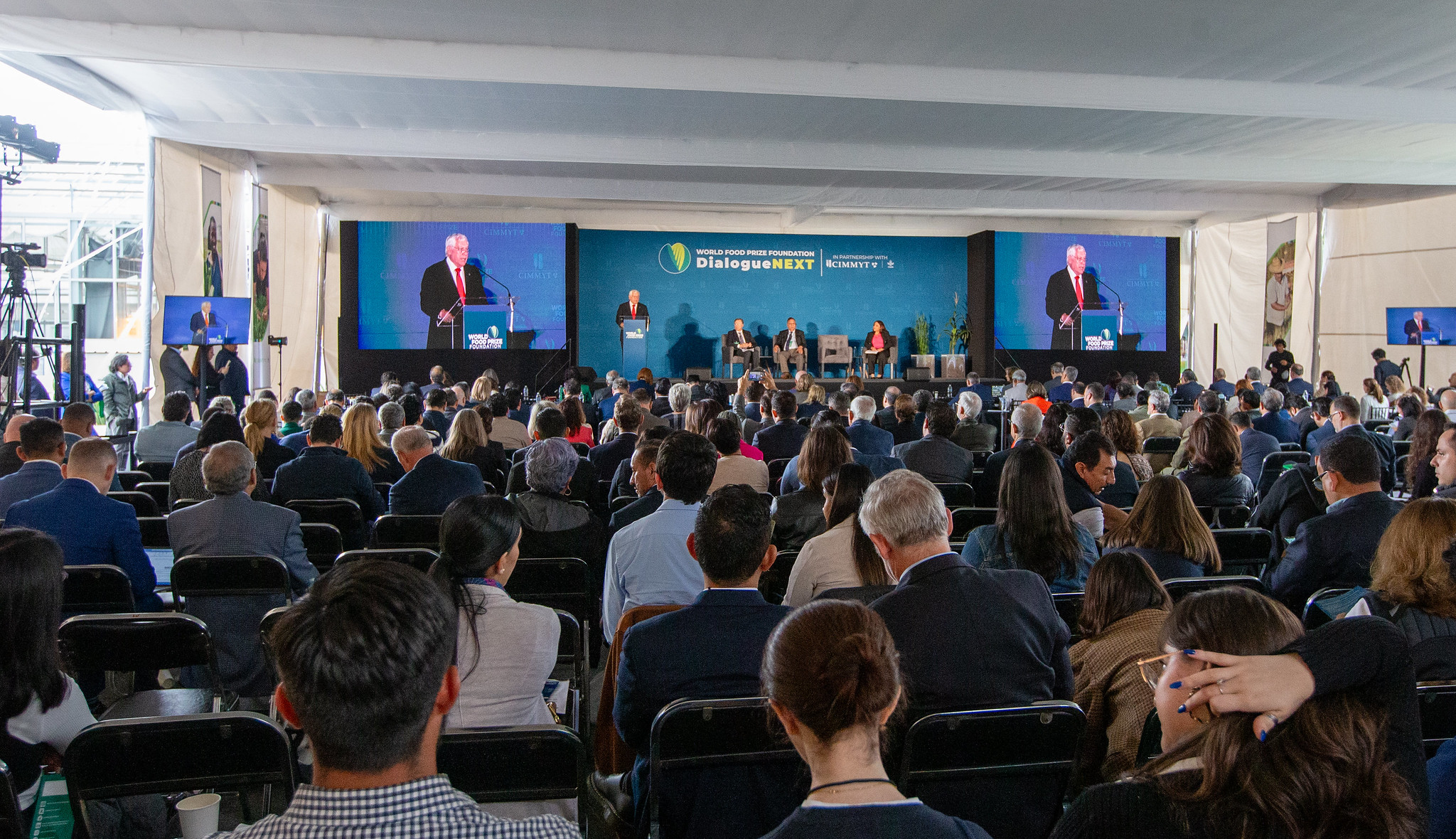Stakeholder collaboration to create a coherent digital agriculture framework, an ecosystem to promote digital agriculture, and local government participation emerged as top recommendations to bridge the gap between technology and agriculture during the International Digital Agriculture Forum, Nepal 2024, held in Kathmandu, Nepal.
The event themed “Innovate, Cultivate, Thrive: Advancing Agriculture with Digital Solutions” brought together global and local stakeholders to explore the transformative potential of digital solutions in Nepal’s agricultural sector.
The focus on addressing the digital divide in Nepal’s agricultural sector by sharing emerging technologies and innovations, generating research ideas to provide inputs to the upcoming digital agriculture strategy of Nepal National Digital Agriculture Strategy and Action Plan for Nepal, and promoting an inclusive and sustainable transformation in the agriculture and food systems of Nepal.
Over the course of two days, the event attracted 135 participants, including 11 international experts and 29 national experts and representatives. It was organized by the Nepal Seed and Fertilizer Project (NSAF) and implemented by CIMMYT, with support from the United States Agency for Agriculture Development (USAID) in partnership with Pathway Technologies & Services Pvt Ltd, Seed Innovation Pvt Ltd, and Kathmandu Living Labs Pvt Ltd.
Key highlights from the event
The forum included keynote presentations, success stories of ICT business practices, and panel discussions with global subject experts, industry leaders, government agencies and local agritech companies. The event also comprised breakout groups for in-depth discussions, and formal and informal networking opportunities.
In his welcome address, Country Representative for Nepal and Coordinator of NSAF Dyutiman Choudhary highlighted the impact of digital agriculture on Nepalese farmers through the NSAF project. He shared how, in partnership with GeoKrishi and PlantSat, farmers now stay more informed on various issues through mobile app, SMS, IVR, farmer advisory services, and crop insurance.
The opening session was chaired by Dr. Deepak Kumar Kharal, secretary, agriculture development, Ministry of Agriculture and Livestock Development (MoALD). Keynote speeches included a global perspective on digital agriculture by Prof. Athula Ginige from Western Sydney University, and national perspective by Ms. Shabnam Shivakoti, joint secretary MoALD.
Prof. Ginige presented on “Cultivating Innovation: Transforming Challenges into a Sustainable Digital Agrifood Future.” He highlighted the plight of 719 million smallholder farmers living below the poverty line and stressed the need to use digital opportunities such as IoT, AI, and big data to address challenges of food waste and climate change. He shared his experience in developing mobile platforms to improve the lives of smallholder farmers.
In her keynote address Shivakoti set the context of Nepal’s digital agriculture and the initiatives undertaken by the government. She highlighted how digital innovations such as virtual agriculture commodity market E-hatbazar, programs such as digital land record maintenance, remote sensing data, and digital apps like GeoKrishi are driving growth in Nepal’s agricultural sector. She also shared details about the draft National Digital Agriculture Strategy.
Judith Almodovar, acting director of the Economic Growth Office at USAID-Nepal, emphasized the importance of digital tools in enhancing productivity, efficiency and sustainability. She highlighted USAID’s investment through NSAF in digital innovations, such as seed and soil fertility management using digital tools.
“By leveraging advanced technologies such as the Internet of Things (IoT), big data analytics, and remote sensing, we can provide real-time insights, improve supply chain management, and increase farmers’ resilience to climate shocks,” she said.
The forum featured three technical sessions: innovations in digital agriculture; digital agriculture in action—policies and practices and; rapid fire presentations by seven Nepalese digital ag companies. Additionally, six local digital start-up companies displayed their products.
The closing session was chaired by Dr. Narahari Prasad Ghimire, director general of the Department of Agriculture, while Dr. Rajendra Prasad Mishra, secretary of Livestock Development, was invited as chief guest.
Recommendations from the forum
The discussions and deliberations led to a series of recommendations primary among which were the importance of stakeholder collaboration to create a cohesive digital agriculture framework and developing partnerships and ecosystems to support digital agriculture, including data governance and personalized advisory services for farmers. Participants also emphasized that local governments must be encouraged to lead agricultural digitization initiatives, including staff training and adopting IoT-based intelligent irrigation systems, sensor-based drip irrigation, and drone technology for monitoring crops and livestock. Digital input certification and QR-based agri-input verification (seed, breed, saplings, and fertilizer) tracking systems to enhance trust and transparency emerged as a critical factor. Participants agreed that it was necessary to design technical information, including emergency agricultural alerts, in various formats (text, video, audio) to accommodate farmers with lower levels of literacy.
Watch event video here.

 Innovations
Innovations 
